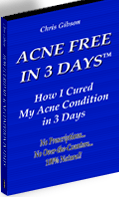 |
|
Combating Acne with Accutane – Just the Basics.
The molecular structure of Accutane is similar to Vitamin A. And with good cause: Accutane is actually a Vitamin A analog, or retinoid. Most doses of Accutane range from 10mg to 40 mg doses. The reason that Accutane is seen as the 'last resort' acne treatment option is because of is potency. After four to five months of regular use, Accutane therapy usually results in a noticeable clearing of acne. Because of its potency, only moderate or severe cases of acne are treated with Accutane. What can be classified as moderate or severe acne? While there are no clear delineations, an easy rule of thumb is that moderate and severe acne causes some form of scarring or other types of disfigurations. Also, moderate and severe cases of acne usually do not respond to conventional treatments. Although Accutane has gotten a bit of a negative reputation for its health risks, some doctors believe that it is actually safer than long-term antibiotic treatment. Over two million people have used Accutane, so its efficacy rates and safety have been well documented. Because it is indeed so potent, Accutane must only be administered under the continued supervision of a medical professional. How does Accutane work? Accutane works by effectively shutting down the oil production of your skin. Accutane accomplishes this by forcing the sebaceous gland to mature. First, testosterone forces the sebaceous gland to produce different kinds of oils that line the hair follicle. Then the oil production level is stabilized so that the composition of the oil is no longer able to clog a person's pores. Accutane also prevents too much keratin, the stuff of skin, to be produced, thus also preventing the clogging of pores and formation of pimples. How long before the effects of Accutane can be visibly seen? On average, it may take up to two months before visible improvement can be detected. Accutane should be taken with a full meal to increase the absorption of the drug. It is recommended that Accutane be taken with fatty foods, such as whole or 2% milk products. This allows the drug to be more readily absorbed. What are some of the drawbacks of using Accutane? Although sometimes termed a 'miracle drug,' Accutane also has a number of drawbacks. Many times, users will experience a significant worsening of symptoms before things get better. Most users report a severe drying of their skin, lips, and dry eyes. Most importantly, Accutane has been linked to severe birth defects. Women of childbearing age must stringently avoid pregnancy while using Accutane. Women must use at least two forms of reliable contraception to prevent pregnancy. Recently, Accutane has also been linked to an increased risk of depression. Because Accutane is a derivative of Vitamin A, patients undergoing Accutane therapy must avoid consuming Vitamin A. Accutane can also cause permanent damage to the liver. Because of this risk, patients undergoing Accutane treatment must be supervised carefully. If you are taking Accutane, you will have to undergo regular blood tests to ensure that your blood-fat levels remain stable. What are the efficacy rates of Accutane? Accutane has a pretty good success rate, with approximately 35 to 38% of patients experiencing complete remission after one course of Accutane. In more stubborn acne cases, your dermatologist may choose to give you more than one course of the medication. After one course of treatment, approximately 70% of all patients experience remission from symptoms. How long is a full course of treatment? One course of treatment usually takes about four to six months. Doses vary according to the patient's body weight. About the author of: Combating Acne with Accutane – Just the Basics Thomas Hunter is an Internet marketer, author and publisher and has helped hundreds of people become successful Niche Marketers. Explore the highly profitable world of Niche Marketing at http://SixFigureNiches.com our popular website. Article Source: http://netsalesinc.com If you have a website or ezine you may freely post this article on your site as long as you include the full resource box above. All links must be active / clickable with no syntax changes.
| |
